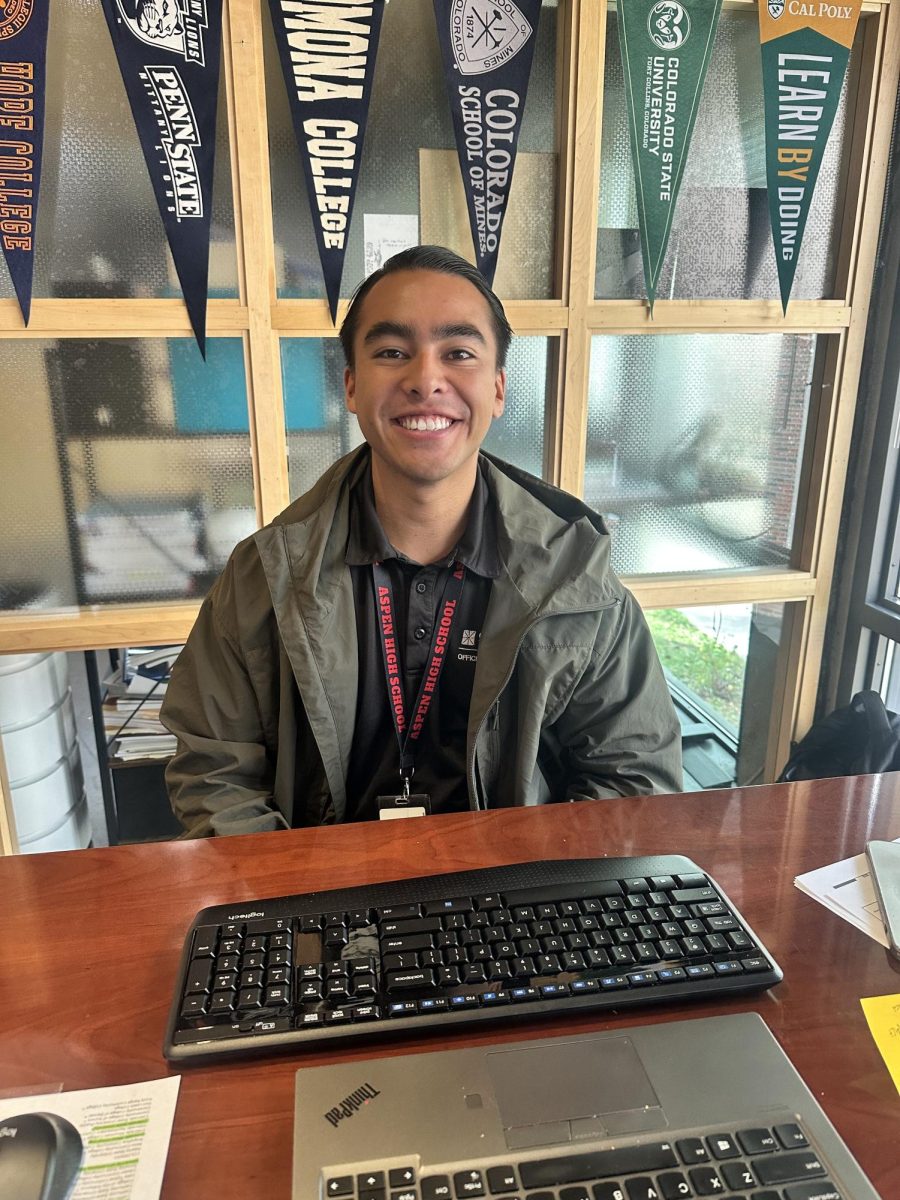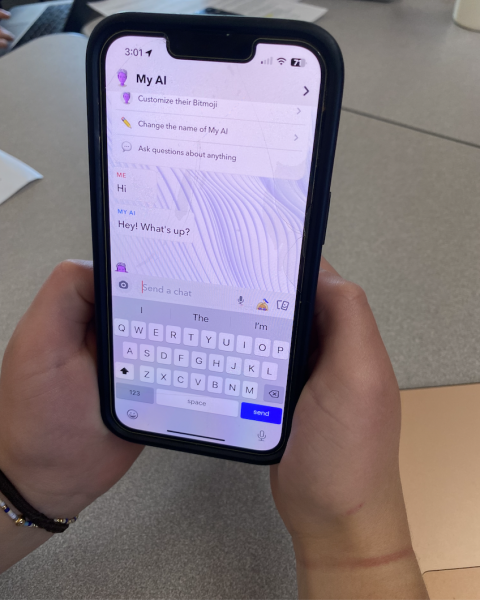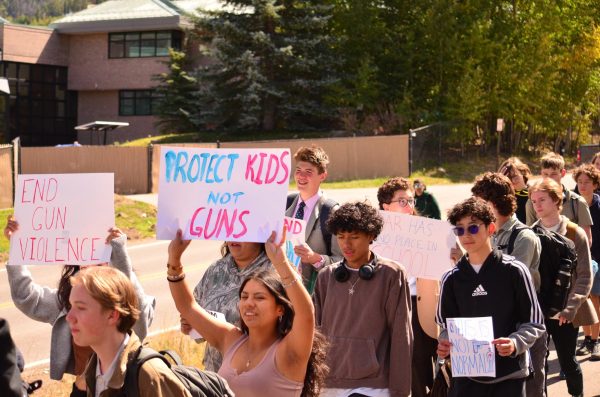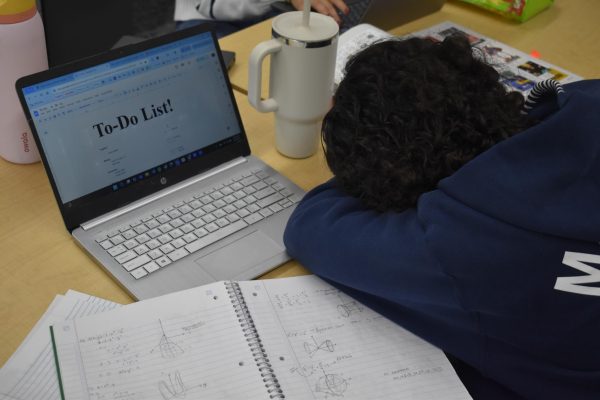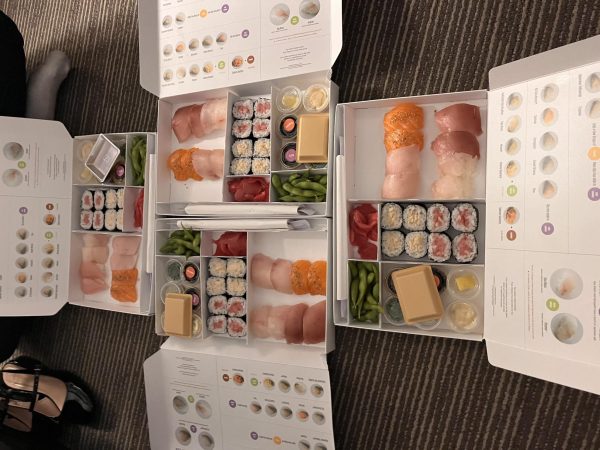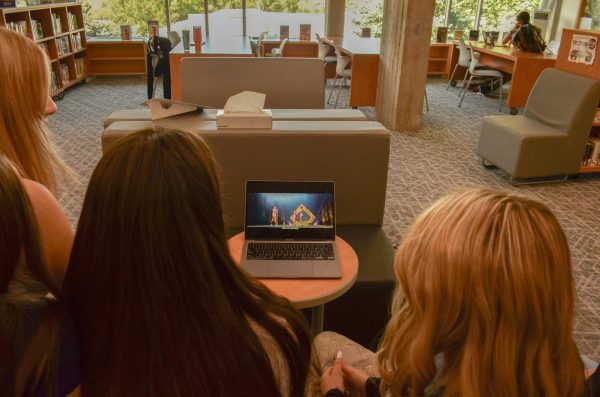Teen Spotlight: With the International Baccalaureate program, is no stress better than no credit?

Photo courtesy of The Skier Scribbler
Aspen High School seniors Ava Thornely (left) and Stef Wojcik (right)
*Originally published on the Snowmass Sun*
The International Baccalaureate (IB) Diploma Programme is one of the many qualities that make Aspen High School the esteemed public school it is.
To earn the full diploma, students must take six IB classes — most of which are two-year courses — write a 4,000-word essay and participate in a Creativity, Activity, Service (CAS) project. Students are required to sacrifice their time, and sometimes their personal activities, to successfully complete the program.
It’s common for juniors and seniors to take at least one IB class, but enrolling in the full IB Diploma program in which students can earn an IB diploma has gained popularity in the past few years. We all hear that the program is the best preparation we will get for college. But is that enough reward to make the commitment worth it?
Macy Hopkinson, a senior at Aspen High School, signed up to complete the IB Diploma because she “wanted to challenge (herself) in all areas and subjects,” she said. Enrolling in the IB Diploma program comes with the expectation that students understand the level of commitment mandatory to succeed, and students who are prepared tend to flourish within the course.
“It was definitely a lot harder than I expected, and I had to put in more work than I thought, but it was worth it,” Hopkinson said. “(The IB diploma) has been very helpful because it taught me so many valuable lessons that will help me succeed in college and in life. It also taught me that I could learn difficult material if I just put in the time.”
But not everyone finds that the program is the best fit for them, including both of us columnists.
As a senior at Aspen High School, I (Ava Thornley) don’t regret my decision to forego the IB diploma for other opportunities; if I had signed up, I wouldn’t have been able to take journalism.
I am so fortunate I was able to take classes in subjects I want to continue to study in the future rather than take classes that would look good when applying to colleges. Now that I have had this experience in journalism, I believe I will be just as prepared for my intended path as someone who earns their IB diploma will be for theirs.
The freedom of a non-IB schedule opens up other opportunities to engage in some of the many unique electives Aspen High School provides, including woodworking, yoga instructor certification, and aviation.
Those options include the Aspen Mountain Guide School course, which my co-columnist Stef Wojcik completes this year.
I (Stef Wojcik) am also a senior at Aspen High School; I started as a diploma candidate but later decided to drop the program. Though I’m still enrolled in multiple IB classes and see the value in taking rigorous courses, I wasn’t willing to sacrifice my athletic, social, and service commitments. Though IB Diploma aims to help students think more critically, it does so on a restricted schedule.
The Aspen Mountain Guide School course, which has provided me with several certifications in different areas of outdoor guiding, heavily weighed my decision. I now have the tools, knowledge, and benefit to work in my fields of interest.
Some students thrive in the learning format of the diploma program, but for others, it’s difficult to balance personal interests and the opportunities presented by the program. As an ex-diploma candidate, I am thankful I chose the path I did, even without the rewards of earning the diploma.
Students who take IB Diploma feel equally as prepared as those who don’t — just for different decisions. Ultimately it’s up to you to decide if you will feel more prepared for college by taking classes that you are passionate about, even without the repute of taking a rigorous class, or if you will leave the exploration time for your college experience.

Ava Thornely is a Senior at Aspen High School. This is her third year as a writer and second as a social media manager. In her free time she enjoys skiing,...





